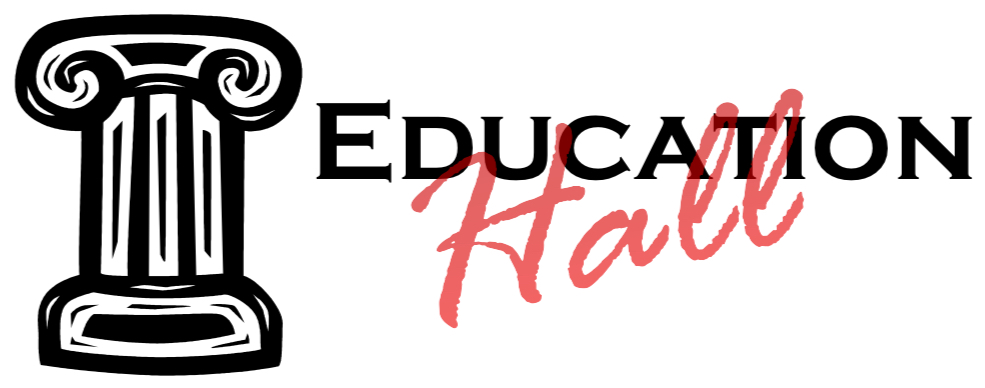By Pete Hall

If you’re looking for information about launching an instructional coaching initiative, refining your instructional coaching practices, or augment your instructional coaching program, you’ve come to the right place. In this multi-blog series, I’ll share what I’ve learned about the nature of instructional coaching/capacity-building work. Here’s the second installment, where we discuss the alignment between coaches and administrators:
How important is it to align the work of instructional coaches and their site administrators? In a word, it’s absolutely critical.
I was an administrator for 14 years (2 as assistant principal, 12 as principal), and it was always one of our leadership priorities to incorporate instructional coaches as much as possible. In my buildings, we knew our students would soar if our teachers continued to grow and develop, and one of the best, most successful, proven ways to build our teachers’ capacity was through consistent, powerful, reflective instructional coaching.
Our coaches, however, never worked on their own. We didn’t hire great coaches and then leave ‘em alone. In order to best support our teachers, and in order to best augment our instructional programming, and in order to build our culture of continuous improvement, we knew we needed to construct a collaborative, aligned coach-administrator partnership.
This theory of action carried us to great heights, and it led to the publication of Building Teachers’ Capacity for Success in 2008, which was followed by a handful of others, including what I refer to as THE book on instructional coaching: Creating a Culture of Reflective Practice: Capacity-Building for Schoolwide Success. I mentioned this in the first FAQ post, and I repeat it here because my co-author, Alisa Simeral, and I are explicit about the need to have an aligned instructional leadership team – and the benefits of emphasizing it at every turn.
In this post, I’ll address questions that relate to the coach-admin partnership, which are simultaneously a) the most commonly-asked questions and b) the most impactful questions, because the strategies and approaches to build such a partnership can have a far-ranging, long-lasting impact.
Let’s dig into it together:
How do we generate school-wide (and/or district-wide) commitment?
This is the big question, isn’t it? We need everyone on board, and that starts with leadership. One of the honest-to-goodness truths in this world of coaching is that success expands exponentially when coaches and administrators are partners through-and-through. So let’s talk about this.
First of all, notice I used the word “commitment” in the question. What we truly want, I’d contend, is commitment – to a goal, a vision, a set of outcomes – and that’s much greater than a robust coaching program. Remember why we have coaches: to build all teachers’ capacity, skills, and impact. And remember why we want that: to help all students grow, learn, develop, and uncover their passions and purpose. That’s our vision, that’s our goal, and that’s our set of outcomes. That’s what we want everyone involved (teachers, administrators, instructional and other staff) to commit to.
Instructional coaching, then, is one tool – one powerful, impactful, incredible tool – to help us get there. Let’s focus our attention on generating commitment to the vision of success, and then build instructional coaching into a viable, desirable, influential strategy for accomplishing it.
How do we do this? I believe that was the original question. First, build the vision, and our team has created a handy multi-session protocol for building a collaborative vision you can find here. Next, as an instructional leadership team (and this can include instructional coaches, department chairs, assistant principals, principals, curriculum coordinators, and/or whatever personnel are assigned the responsibility of setting the instructional/learning directions), come together to build a common understanding of the ideal partnership that can orchestrate success in achieving the vision. Together, clarify your roles, understand which are administrator-only responsibilities, which are coach-only duties, and which can effectively overlap. When we agree upon these roles and responsibilities, it’s much easier to “stay in our lanes” and become exceptional supporter of teachers.
One of the honest-to-goodness truths in this world of coaching is that success expands exponentially when coaches and administrators are partners through-and-through.
How do I get my administrators on board if they’re not active participants in capacity-building?
My first response is, Why aren’t your administrators on board? I know there are a lot of reasons. Maybe:
- They trust you, as coaches, to lead the instructional charge.
- They feel overwhelmed with all their other responsibilities.
- They don’t feel instructional leadership isn’t in their wheelhouse.
- They don’t believe in coaching as an effective growth strategy.
Whatever the cause, an essential first step is to go to your administrator and talk about it. Ask what they believe their role is in constructing and growing a powerful instructional program.
Then, once you have gathered a little information, you may have to “coach up” a bit. Here’s an idea to match each of the possible scenarios above:
- Together, build a vision of high-quality learning experiences and discuss how you can partner to create and oversee the development of that vision. Show how it’s essential for coaches and administrators to provide wraparound support to nurture teacher growth.
- Discuss how growing a powerful instructional program can help alleviate a lot of the “fires” and other demands on the administrator’s time. By developing teachers’ reflective skills and prowess, administrators will have to handle fewer incidents and requests because teachers will be equipped to do so on their own.
- Learn together about the ins and outs of instructional leadership. Enroll in our online course in capacity-building to build background knowledge and skills in feedback practices, coaching strategies, and differentiating support for teachers, to show your administrator it isn’t rocket science – it’s human science.
- Recruit your administrator into an article study, book study, or other learning program to build their understanding of what you’re really trying to do, and how coaching can be a marvelously effective way to do that.
The long and short of this answer: communicate, communicate, communicate.
How do I coach a teacher who needs support but gets glowing evaluations from administrators?
Well, to continue a theme, it appears that there is a breakdown in communication here. To open the conduit and ensure calibration between coaches and administrators, here are a couple of questions to prompt a conversation:
- Are a glowing evaluation and a need for coaching mutually exclusive? (Hint: I’d say not.)
- How can we calibrate our abilities to observe and notice high-quality instructional practice? (Hint: I might suggest engaging in some classroom visits together with “guinea pig” teachers who allow you to use their classrooms as training grounds.)
- What are we doing to build a culture of continuous improvement? (Hint: I’d look at what we celebrate and what we value. If there’s overlap, great! If not, that might be a place to start.)
- What is our expectation for all teachers, when it comes to growing, learning, collaborating, partnering with coaches, working with their teammates, expanding their skills, and otherwise committing to getting better? (Hint: “Clarity precedes competence,” according to the late, great Becky DuFour. So let’s get explicit in laying out our expectations and offering multiple avenues – including coaching – for teachers to widen their lenses and increase their effectiveness.)
- If a teacher is resistant to your coaching offers, is that really where you ought to be spending your time and energy? (Hint: Coaches are 100% support, and the epicenter of an effective coach-teacher partnership must be the teacher. So coaches can’t force teachers to engage in coaching, even if coaches know they need it. Coaches can invite, offer, coax, nurture, even cajole…ultimately the teacher must ask for the support. *If the administrator says, “Reach out to your coach and get support with this,” as long as that’s what happens, great! That counts.)
How do I convince teachers I’m not there to evaluate them or report on them to administrators?
This is a question about trust. And there’s one really effective way to build trust: say what you’re going to do, then do it. This can be a very time consuming, labor-intensive process, because many teachers will need to see a coach doing what they said they’d do over and over and over again before they truly believe it. And many teachers will need to see their administrator’s evaluation of them – and notice that none of the coach’s feedback, nor any of the coach-teacher’s conversations – found their way into the evaluation documents before they truly believe it. And many teachers will need to know they can screw up in front of the coach (teach a concept wrong, use a flimsy lesson plan, get angry at a student, forget to pull small groups during small-group time, or who knows what else) and an administrator won’t magically appear in their classroom doing an impromptu walk-through 30 seconds later before they truly believe it. And even then, it might take months, years even.
Yet it only takes one slip-up to erode any buildup of trust. And that slip-up (using evaluative language, sharing coach-teacher “privilege” conversations with administrators, reporting transgressions to administrators, etc.) might well hamstring all a coach’s future coaching efforts and eliminate the possibility of building a trusting, safe culture at all.
When in doubt, if you notice something amiss in a teacher’s classroom, either a) chalk it up as a one-off and ignore it, or b) bring it to the teacher’s attention in a conversation separate from your regular coaching conversation. Choice b might sound like this: “Okay, teacher, now that we’ve made some headway with that instructional strategy, can I ask you about something else I noticed in your classroom earlier today?”
What authority do I have as an instructional coach?
None. You’re working in 100% support of teachers. That’s not authority, that’s responsibility. And you’ve got an obligation to support high levels of student learning, continuous growth of the instructional program, and the reflective capacity and skills of your teachers, but no authority. That must be liberating, yes?
There will be more. This work is too important, and too complex, to leave to chance. Hope that helps!
Pete Hall is the President/CEO of EducationHall, LLC, and the author of 12 books. You can reach him at PeteHall@EducationHall.com.
Stay Up To Date
Stay up to date with the latest news updates and blog posts
Share Article
Share this post with your network and friends

Recent Comments